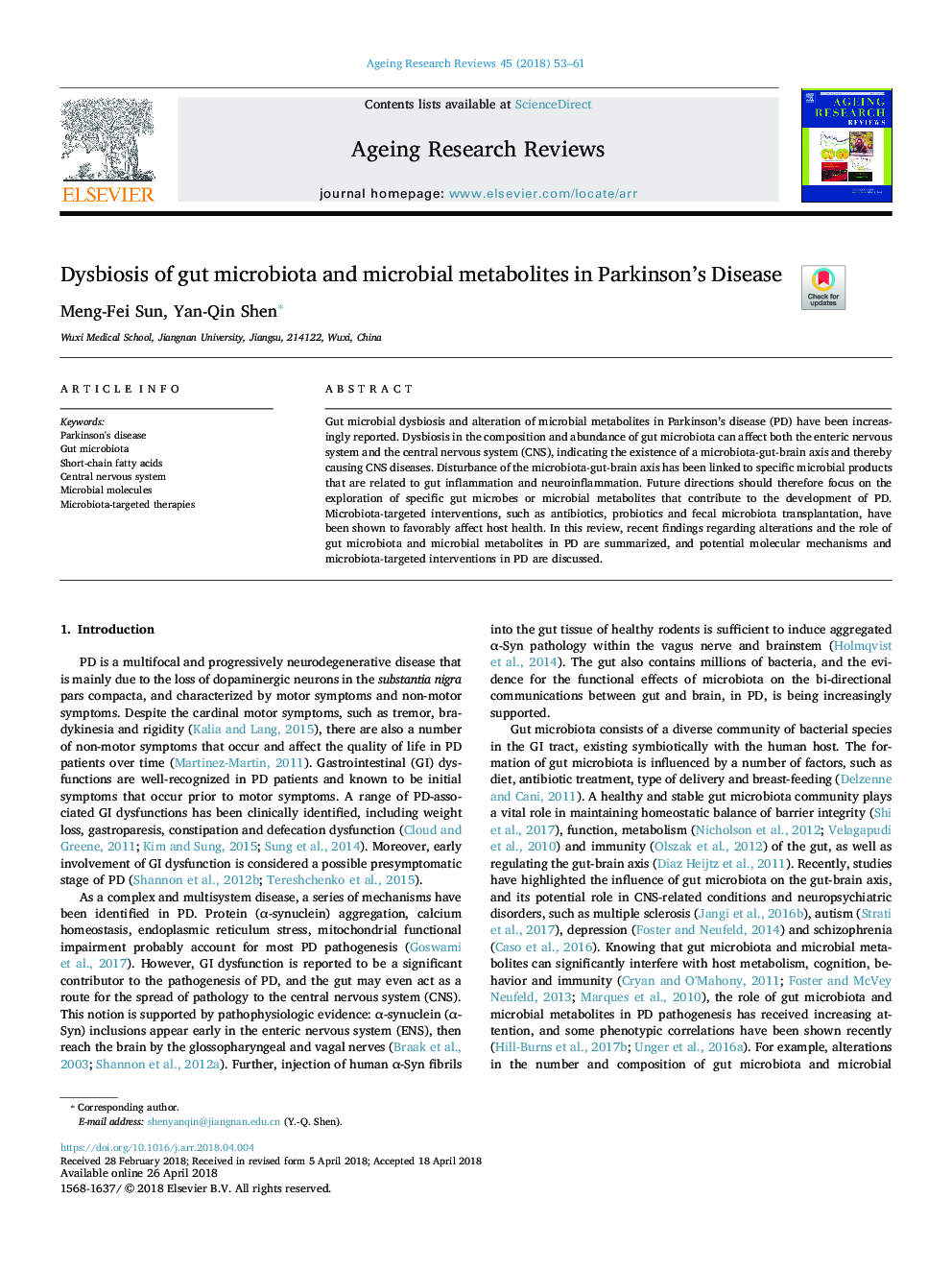| Article ID | Journal | Published Year | Pages | File Type |
|---|---|---|---|---|
| 8257146 | Ageing Research Reviews | 2018 | 9 Pages |
Abstract
Gut microbial dysbiosis and alteration of microbial metabolites in Parkinson's disease (PD) have been increasingly reported. Dysbiosis in the composition and abundance of gut microbiota can affect both the enteric nervous system and the central nervous system (CNS), indicating the existence of a microbiota-gut-brain axis and thereby causing CNS diseases. Disturbance of the microbiota-gut-brain axis has been linked to specific microbial products that are related to gut inflammation and neuroinflammation. Future directions should therefore focus on the exploration of specific gut microbes or microbial metabolites that contribute to the development of PD. Microbiota-targeted interventions, such as antibiotics, probiotics and fecal microbiota transplantation, have been shown to favorably affect host health. In this review, recent findings regarding alterations and the role of gut microbiota and microbial metabolites in PD are summarized, and potential molecular mechanisms and microbiota-targeted interventions in PD are discussed.
Related Topics
Life Sciences
Biochemistry, Genetics and Molecular Biology
Ageing
Authors
Meng-Fei Sun, Yan-Qin Shen,
